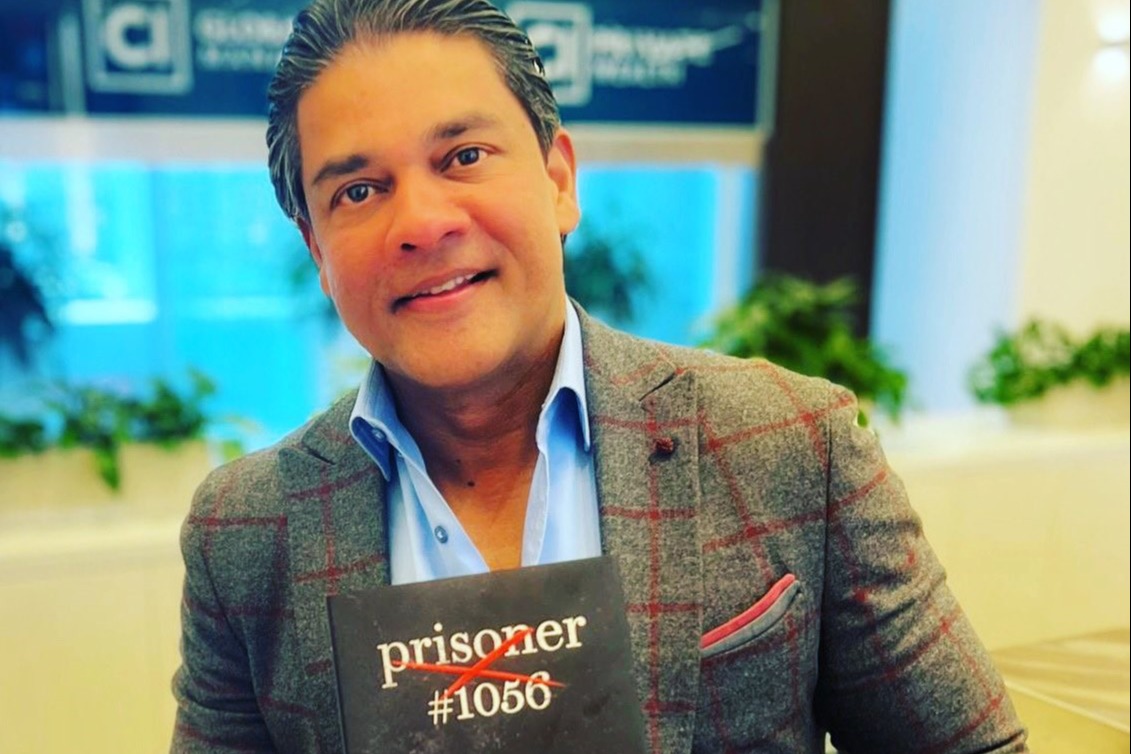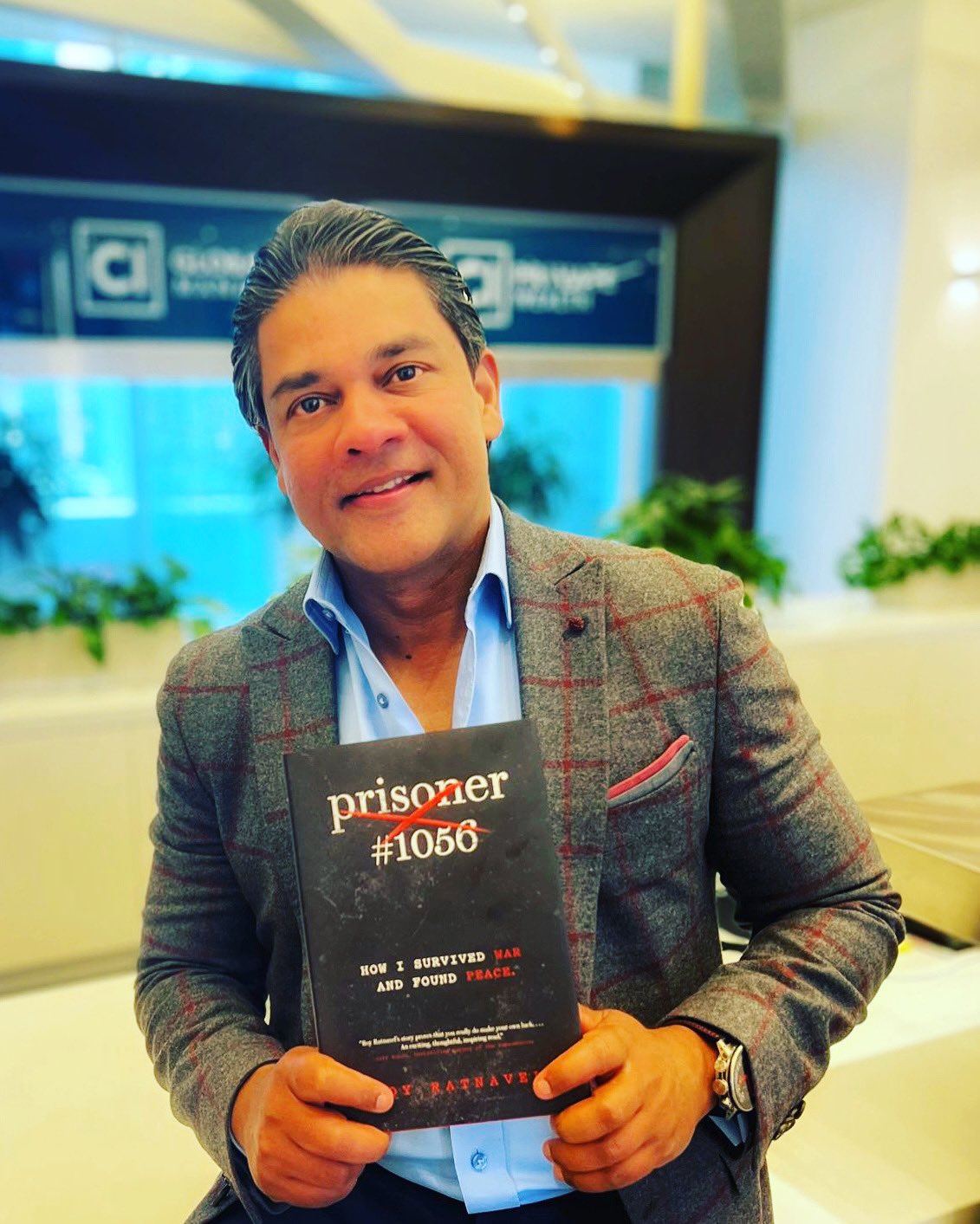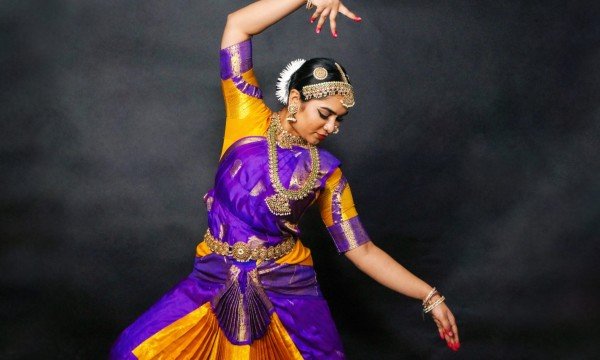
Note: This interview contains spoilers.
In one of the chapters of his book "Prisoner #1056," set for release on April 18, Roy ponders, "Was my fate my own to create, or was it predetermined?" A question that each one of us has pondered from time to time. He defines the answer at the end of the paragraph itself. "What we believe is our fate." In subsequent pages, he elaborates, "Fate is not what happens to you. It's how you allow what happens to you to shape you." This very much is the essence of the book and the wisdom that Roy aims to instill in his reader.
In "Prisoner #1056," Roy recounts his hero's journey. He not only takes us through the dingy floors of a Sri Lankan prison where he lies stripped of dignity, identity, and void of strength to even think if he might survive the day that's to come. He also takes us through the dark corners of his inner self; the anger, the trauma, and the demons that he constantly battles. Battles that, at times, challenge him to simply look in the mirror and accept the person that looks back. This courage to bare oneself on the pages of this book, being unapologetically proud in celebrating his success while also being self-critical, vulnerable, and rediscovering himself at every challenge that life throws at him is what makes this memoir heartfelt, sincere, and profound.
Interlaced within is a love letter to dear Appā, an ode to Canada, a celebration of his Tamil identity, and gratitude towards every life that shaped him into becoming who he is today. A Tamil story to the world, Roy Ratnavel through the pages of "Prisoner #1056" dares us to take destiny into our own hands and create the life, meaning, and legacy that we want the future to uphold and celebrate.
"Prisoner #1056" is available at: Amazon & Indigo (Canada)
TC's Interview with Roy Ratnavel on Prisoner #1056:

Roy with the author’s copy of Prisoner #1056.
“Prisoner #1056.” Why did you choose to name your book by a token that represented one of the lowest points in your life?
It was intentional because for every human being self-identity is important. So what happened here was that they stripped away that from me and many others like me in prison and just gave us a number. So we were known as the prisoners, as this group, where I was just this number. It also ties in with the end of the book too where I argue for individuality rather than group identity. My intention here, rightfully or wrongfully, was to show the evolution of this character, which is me, going from an utterly hopeless dark moment into somewhat of a fulfilled life. Crafting my own identity in the process. I wanted to take the reader through that journey. Also, it was catchy. And when you say "Prisoner #1056," it creates curiosity. I wanted to make it more mysterious. On the cover, you will notice the two red lines, which are indicative that I am no longer Prisoner #1056.
I understand that this is deeply personal. Why was it easier for you to come to terms with 'Prisoner #1056' compared to owning your birth name, 'Subendran'? It was also interesting to me that you owned your name, 'Subendran', in the final chapter.
It was a difficult decision to make to bury my past. And I thought that getting rid of the name and re-branding myself, maybe at some psychological level, created a new me. But then I realized, towards the end of the book, that I became more comfortable with who I was from the beginning. I was always running away from the past. Whereas today, I am in a position where I am comfortable about everything. Reflecting on it, I am still the same kid just in an older body. Those past lessons are unchangeable. They can give you a path to a new life and better success.
Also on some level I was ashamed to be identified as a Tamil at that point in my life. Hence why today I go out of the way to mention that I am unapologetically Tamil by heritage. And I want it to be on record for saying that.
I also use Viktor Frankl's quote in the book, which is, 'The greatest human need is meaning,' and without it, you are lost. And I don't think I had meaning in my life before. I would like to say that I have found meaning, at least in my own way, and that's why I am back to using Subendran more often, as you can see in the later chapters.
Date on your own terms! Join the other couples who have dated and married through myTamilDate.com!
There is a key moment in the book where your six-year-old son, Aaron, whom you had assumed to not know about your time in prison, suddenly asks “Were you sad when you were in prison, Daddy?” While your answer was brief yet honest then, have you shared this experience with your son? And if so what was his reaction?
Yes. He doesn’t particularly remember that conversation. But I have been honest with him about what happened to my father as that was one of his questions a long time ago for which I answered that he died in an accident. I didn’t want to give him nightmares. But now he knows what happened.
And in the context of his life today, now he’s eighteen and I was eighteen when I came here so it’s such a dichotomy. A dichotomy in the sense that the life he has is far different and better. Not to say that he doesn’t have challenges. They are different. It would be unfair for me to compare my challenges to his. As he said to me one day “Dad it’s not my fault that I was born in a free country. So you can’t be holding your past to shape mine.” But I would take lessons from it and have conversations. Resilience, fighting back, being proud of who you are, having individual thoughts, questioning things and evolving your mind. But I wouldn’t say that he has read the book yet but he has promised to do so.
When you visited the place where your father was killed you weren’t able to display any emotions. But the morning after your son’s birth you completely break down in front of the mirror. What was about the birth of Aaron that brought about those emotions?
I didn’t want to elaborate too much on it in the book. I wanted the reader to have their own thoughts about what would have been the emotions I went through. There are a couple of layers to it.
Now that I am a father I realized how I needed to make my precious little baby be safe, grow old and be successful. When my father died it was just two days after I came to Canada. He had no idea if I would succeed or fail. He had his own anxieties about me coming to Canada by myself at the age of eighteen. So, it was just that as a father I felt what he would have felt when I left Sri Lanka, when I was in prison or when he was shot and took his last breath. The feeling that he won’t be able to guide me anymore.
It was all of this plus the fact that I had not shown any emotion, when my father died or when I visited the place where he was shot. I had become this person thinking that if I cried then my tormentors would win. It may have been a mistaken line of thinking. In fact I should have let it out, dealt with it. And in that way I wouldn’t have had all these anger issues that eventually became a bit of a roadblock to my success. So in that very moment, by myself, in front of the mirror, after the tsunami happened, I was catching myself in the mirror and just blew up. All that burden just came out.
Captain Udugama, who unjustifiably arrests you, gets killed and his funeral, ironically, happens the day you are rescued by Uncle Fernando and released from prison. Appa gets killed by the Indian Army and subsequently Rajiv Gandhi, who was in charge of the Indian Army at that time, gets killed by the LTTE. Do these events help with your healing process knowing that there is some level of closure to those dark moments?
No. The crux of it isn't about revenge. If it was just about revenge then that would be it, correct? You would say my dad died at the hands of the IPKF, Rajiv Gandhi was in charge of that, so the score is settled. But there was nothing about my life, at that time, that was settled. I didn’t have my father, I was a mess, and my mother was battling with mental illness because of that. Ultimately I realized that revenge was not the solution to whatever “victimhood” I was feeling at that time. The solution was going back to what my Dad said. “I don’t want you to survive, I want you to live.” Then understanding that it's such a lowest common denominator thinking to say “avenge someone’s death.” The best way to avenge is to live better. To fulfill the very reason that my father sent me down here.
Let’s think about Uncle Fernando. He had his own reasons to avenge his son’s death. I am sure he has done bad things as a Colonel. But he didn’t look at me as an enemy. He looked at me as a friend’s son. There is some beauty in that too, in humanity. Sometimes if you break down the barriers to see someone as purely human and then that feeling can unite people beyond race and religion and other markers. And I think that is the theme that is running through the book in a way.
For people who go through such cathartic experiences as you have, faith or spirituality usually finds a place as a means in making sense of it all. But this seemed notably absent. Is there a reason for it?
My father, for my inspiration and or deficiencies, right or wrong, has been a source of my strength. My grandfather was a religious man and a devout Hindu. He didn’t drink or smoke. My father was the opposite. He drank a lot, smoked a lot and scoffed at all religions. So growing up under his guidance, I had resentment towards god, religion and faith. Remember my dad mentions: “Vidhiyaiyum mathiyāl veḷḷāḷam”—Even fate can be overcome by the mind. Ironically he couldn’t change his fate.
I am not an atheist nor a religious person. I figured that if I did the right things, the outcome will be something that is desirable. For me these were hard work, learning, and progressing. The lesson in that is that it comes at a cost. The cost of relationships, friendship, and just generally as a person, the cost of you, you are hollowed out.
I talk about the incident where I found myself upside down in a car. Then, I got into a truck and looked at myself in the mirror, wondering, "What is this all about?" I believe I had a potentially "spiritual moment," if I may say so. I could have died at that moment, but then what would be my legacy? What is life all about? Just running around, making money, and then one day you die, and is that it? It was a pivotal moment for me. Even though I had wanted to be like Bill, traveling to nice places and making money, that almost fatal moment made me reflect on my family. That's why I mentioned that when I went back and slept that night, it felt right.
Read part 2 of our interview with Roy Ratnavel here.

























